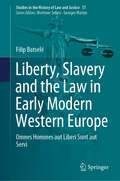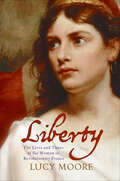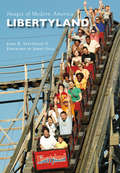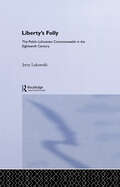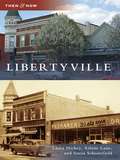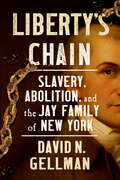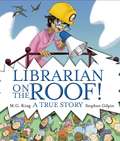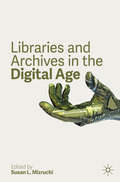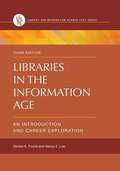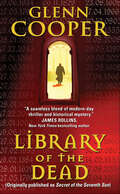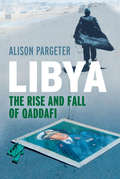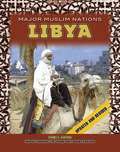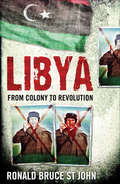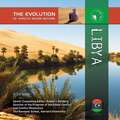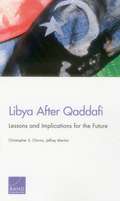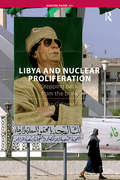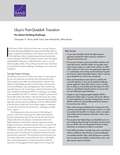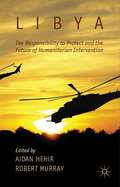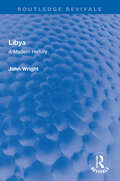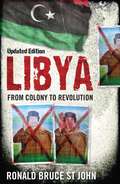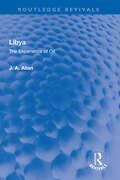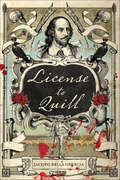- Table View
- List View
Liberty, Property, and Privacy: Toward a Jurisprudence of Substantive Due Process (G - Reference, Information and Interdisciplinary Subjects)
by Edward KeynesIn this book, Edward Keynes examines the fundamental-rights philosophy and jurisprudence that affords constitutional protection to unenumerated liberty, property, and privacy rights. He is critical of the failure of the U.S. Supreme Court to adopt a coherent theory for identifying which rights are to be considered fundamental and how these private rights are to be balanced against the public interests that the government has a duty to articulate and promote. Keynes develops his argument by first surveying how substantive due process grew out of the tradition of Anglo-American jurisprudence and came to evolve over time. He pays special attention to the shift in its application early in the twentieth century, from protecting "liberty of contract" against economic regulation to protecting "privacy" and other noneconomic rights (as in Roe v. Wade) against social regulation.
Liberty, Slavery and the Law in Early Modern Western Europe: Omnes Homines aut Liberi Sunt aut Servi (Studies in the History of Law and Justice #17)
by Filip BatseléThis book investigates the legal evolution of the “free soil principle” in England, France and the Low Countries during the Early Modern period (ca. 1500–1800), which essentially stated that, as soon as slaves entered a certain country, they would immediately gain their freedom. This book synthesizes the existing literature on the origins and evolution of the principle, adds new insights by drawing on previously undiscussed primary sources on the development of free soil in the Low Countries and employs a pan-Western, European and comparative approach to identify and explain the differences and similarities in the application of this principle in France, England and the Low Countries. Divided into four sections, the book begins with a brief introduction to the subject matter, putting it in its historical context. Slavery is legally defined, using the established international law definition, and both the status of slavery in Europe before the Early Modern Period and the Atlantic slave trade are discussed. Secondly, the book assesses the legal origins of the free soil principle in England, France and the Low Countries during the period 1500–1650 and discusses the legal repercussions of slaves coming to England, France and the Low Countries from other countries, where the institution was legally recognized. Thirdly, it addresses the further development of the free soil principle during the period 1650–1800. In the fourth and last section, the book uses the insights gained to provide a pan-Western, European and comparative perspective on the origins and application of the free soil principle in Western Europe. In this regard, it compares the origins of free soil for the respective countries discussed, as well as its application during the heyday of the Atlantic slave trade. This perspective makes it possible to explain some of the divergences in approaches between the countries examined and represents the first-ever full-scale country comparison on this subject in a book.
Liberty: The Lives and Times of Six Women in Revolutionary France
by Lucy MooreThe ideals of the French Revolution inflamed a longing for liberty and equality within courageous, freethinking women of the era—women who played vital roles in the momentous events that reshaped their nation and the world. In Liberty, Lucy Moore paints a vivid portrait of six extraordinary Frenchwomen from vastly different social and economic backgrounds who helped stoke the fervor and idealism of those years, and who risked everything to make their mark on history.Germaine de Staël was a wealthy, passionate Parisian intellectual—as consumed by love affairs as she was by politics—who helped write the 1791 Constitution. Théroigne de Méricourt was an unhappy courtesan who fell in love with revolutionary ideals. Exuberant, decadent Thérésia Tallien was a ruthless manipulator instrumental in engineering Robespierre's downfall. Their stories and others provide a fascinating new perspective on one of history's most turbulent epochs.
Libertyland (Images of Modern America)
by John R. V Jimmy OgleNestled in the heart of Memphis, Tennessee, the Libertyland theme park debuted on America�s bicentennial: July 4, 1976. The quaint park celebrated America�s history, heritage, and culture. Not only was it home to Elvis Presley�s favorite roller coaster, Libertyland also offered guests rides on the historic Grand Carousel, exciting shows, gift shops selling handcrafted souvenirs, delicious food, and much more. The park�s themed areas�Colonial Land, Frontier Land, and Turn-of-the-Century Land�paid tribute to some of the country�s most historically significant eras. From its opening in 1976 until its closure in late 2005, Libertyland was a first roller coaster ride, a first date, a family reunion, a summer job, or simply a reprieve from the hustle and bustle of the real world.
Libertys Folly:Polish Lithuan
by Jerzy Tadeusz LukavskiIn the closing years of the 18th century, the old Polish state paid the price of over 100 years of ungovernability in political extinction. Between 1772 and 1795 an area of Eastern Europe larger than France was divided among Russia, Prussia and Austria. At the very time that monarchial absolutism seemed to be collapsing in Western Europe, the dismemberment of the Polish "noble democracy" affirmed absolutism's triumph in the East. Bringing together Polish scholarship previously inaccessible to English-speaking readers, the author examines the economy, the society and the institutional structure of early modern Poland and analyzes her loss of national sovereignty in the light of Poland's lack of political centralization and dynastic strength. Not only does this book illuminate a much neglected area of European history, and assist those trying to make sense of Poland's heritage, it also provides much comparative material for students of early modern history in general. Furthermore no reader could fail to be struck by the parallels in the problematic relationship between Poland and Russia in the 18th century and today.
Libertyville
by Sonia M. Schoenfield Laura Hickey Arlene F. LaneA turning point for Libertyville came in the 1950s. The town was growing up, transitioning from a quaint farming community into a vibrant upper-middle class suburban village. Carl Cizek documented this change in a series of photographs. Recaptured today, the images offer a visual journey of a maturing town. .
Liberty’s Chain: Slavery, Abolition, and the Jay Family of New York
by David N. GellmanIn Liberty's Chain, David N. Gellman shows how the Jay family, abolitionists and slaveholders alike, embodied the contradictions of the revolutionary age. The Jays of New York were a preeminent founding family. John Jay, diplomat, Supreme Court justice, and coauthor of the Federalist Papers, and his children and grandchildren helped chart the course of the Early American Republic. Liberty's Chain forges a new path for thinking about slavery and the nation's founding. John Jay served as the inaugural president of a pioneering antislavery society. His descendants, especially his son William Jay and his grandson John Jay II, embraced radical abolitionism in the nineteenth century, the cause most likely to rend the nation. The scorn of their elite peers—and racist mobs—did not deter their commitment to end southern slavery and to combat northern injustice. John Jay's personal dealings with African Americans ranged from callousness to caring. Across the generations, even as prominent Jays decried human servitude, enslaved people and formerly enslaved people served in Jay households. Abbe, Clarinda, Caesar Valentine, Zilpah Montgomery, and others lived difficult, often isolated, lives that tested their courage and the Jay family's principles.The personal and the political intersect in this saga, as Gellman charts American values transmitted and transformed from the colonial and revolutionary eras to the Civil War, Reconstruction, and beyond. The Jays, as well as those who served them, demonstrated the elusiveness and the vitality of liberty's legacy. This remarkable family story forces us to grapple with what we mean by patriotism, conservatism, and radicalism. Their story speaks directly to our own divided times.
Libra
by Don DelilloIn this powerful, eerily convincing fictional speculation on the assassination of John F. Kennedy, Don DeLillo chronicles Lee Harvey Oswald's odyssey from troubled teenager to a man of precarious stability who imagines himself an agent of history. When "history" presents itself in the form of two disgruntled CIA operatives who decide that an unsuccessful attempt on the life of the president will galvanize the nation against communism, the scales are irrevocably tipped. A gripping, masterful blend of fact and fiction, alive with meticulously portrayed characters both real and created, Libra is a grave, haunting, and brilliant examination of an event that has become an indelible part of the American psyche.
Librarian on the Roof! A True Story
by M. G. KingLibrarian on the Roof! is based on the true story of Rose Aleta Laurell. This dedicated librarian took to the roof of the Dr. Eugene Clark Library in Lockhart, Texas, on October 16, 2000, in order to raise money for its children's section.
Libraries and Archives in the Digital Age
by Susan L. MizruchiThe role of archives and libraries in our digital age is one of the most pressing concerns of humanists, scholars, and citizens worldwide. This collection brings together specialists from academia, public libraries, governmental agencies, and non-profit archives to pursue common questions about value across the institutional boundaries that typically separate us.
Libraries in the Information Age: An Introduction and Career Exploration (Third Edition) (Library and Information Science Text)
by Denise K. Fourie Nancy E. Loe<p>The book <i>Library Media Connection</i> cited as something "all librarians need to have on their shelves" is now thoroughly revised for today's 21st-century library environment. Covering both technology and library practices, the title has been a go-to text for librarians and library school students since 2002. <p> <li>Thoroughly revises and updates a popular text for LIS or LTA programs that can also be used in MLIS curricula and for four-year programs in library studies and information studies <li>Provides a succinct introduction to the library industry and a practical overview of the field from seasoned practitioners <li>Brings together learnings from academic, public, special, and school libraries as well as archives and historical agencies, presenting material with both depth and breadth <li>Is applicable as an introduction for library funding agencies and public library trustees or boards</li>
Libraries, Books, and Collectors of Texts, 1600-1900 (Routledge Studies in Cultural History #61)
by James Gregory Annika BautzThis book presents the collectors’ roles as prominently as the collections of books and texts which they assembled. Contributors explore the activities and networks shaping a range of continental and transcontinental European public and private collections during the Renaissance, Enlightenment and modern eras. They study the impact of class, geographical location and specific cultural contexts on the gathering and use of printed and handwritten texts and other printed artefacts. The volume explores the social dimension of book collecting, and considers how practices of collecting developed during these periods of profound cultural, social and political change.
Library of the Dead: (originally Published As Secret Of The Seventh Son) (Will Piper #1)
by Glenn CooperOriginally published as Secret of the Seventh Son.Assigned to the high-profile "Doomsday" serial killer case, FBI agent Will Piper is hitting dead end after dead end. The victims seem to have nothing in common: age, background, or even the way they die. All that connects them is a postcard each received in the mail announcing his or her date of death—all sent from Las Vegas, where a brilliant computer scientist leads a double life. Just when agent Piper finds a credible lead, he's removed from the case. Continuing the investigation on his own, he must outwit a ruthless team of covert operatives from Area 51 protecting the government's greatest secret. From a medieval monastery to a cutting-edge government laboratory, Library of the Dead delivers a richly detailed, thought-provoking exploration of fate, predestination, and the choices we make in life.
Libya
by Alison PargeterFor a reader unfamiliar with the history of Libya, Muammar Qaddafi might be mistaken for a character in fiction. His eccentric leadership as the nation's "Brother Leader," his repressive regime, sponsorship of terrorist violence, unique vision of the state, and relentless hold on power all seem implausibly extreme. This riveting book documents the extraordinary reality of Qaddafi's rise and 42-year reign. It also explores the tenacious popular uprising that finally defeated him and the possibilities for Libya as the future unfolds. Alison Pargeter, an author with deep understanding of Libya's history and people, explains what led up to Qaddafi's bloodless coup in 1969 and how he proceeded to translate his highly personalized vision into political, economic, and social policy. She discusses his tight-knit networks, the crises he overcame—including sanctions after the Lockerbie bombing in 1988—as well as his astounding maneuverings in the early 2000s to restore tattered relations with the West. Pargeter provides a thoroughly fascinating analysis of the 2011 revolt and uncovers the full details of Qaddafi's downfall. She concludes by introducing the new power brokers in post-Qaddafi Libya as well as the variety of knotty challenges that now confront them.
Libya
by Dan HarmonFor more than three decades, most countries of the world have viewed Libya as a radical, unstable nation. Under the leadership of Muammar al-Qaddafi, Libya has sponsored international terrorism and supported efforts to overthrow the governments of its African neighbors. This has led to confrontations with the West, particularly with the United States during the 1980s. Beneath the sands of Libya lies a valuable resource-vast amounts of oil. Despite this, the people of Libya have remained poor during Qaddafi's rule. Although in recent years Libyan society appears to have become more open, and Qaddafi seems to have moderated some of his extremist views, the future of the country remains uncertain. Discusses the geography, history, economy, government, religion, people, foreign relations, and major cities of Libya.
Libya
by Ronald Bruce St. JohnCombining a historian's balance with an analyst's insight to skilfully navigate Libya's eventful past and present, Ronald Bruce St John updates his authoritative history of this turbulent North African state to include an in-depth examination of the 2011 rebellion that finally put an end to over 40 years of authoritarian rule by Qadaffi. From early Greek settlements to the infamous Lockerbie bombing, and from the colonel's astonishing return to the international stage to the events that led to his ousting, this stands as an essential introduction to this complex land on the cusp of Africa and the Middle East. Ronald Bruce St John is a scholar of Libya, having consulted to ABC's 20/20, the New York Times, Fortune 500 companies, and the U.S. government. Now an analyst for the progressive think tank Institute for Policy Studies, he has also served on the advisory board of The Journal of Libyan Studies and the Atlantic Council's working group on Libya. A former military intelligence officer in the US army, he is the author of Libya and the United States and Qaddafi's World Design, among other books.
Libya (The Evolution of Africa's Major Nations)
by Judy HasdayLibya is the third-largest state in Africa by area. Located in North Africa, it has no permanent rivers or streams, as the Sahara Desert covers most of the country. Yet just beneath the land's surface lie huge reserves of oil, which have provided vast wealth for Libya's political elite. Unfortunately, little of this wealth has reached the country's approximately 6 million residents. For more than 40 years, Mu'ammar al-Gadhafi ruled Libya as an authoritarian state. The hostile foreign policies of the controversial leader, including support for international terrorist groups, caused Libya to become politically and economically isolated from the rest of the world during the late 20th century and early 21st century. In February 2011, a civil war began in Libya that resulted in the overthrow of Gadhafi's government--and eventually, the dictator's execution. Today, Libya remains in turmoil politically, as various factions squabble for power in the newly forming government.
Libya After Qaddafi: Lessons and Implications for the Future
by Christopher S. Chivvis Jeffrey MartiniThe 2011 overthrow of Libyan dictator Muammar Qaddafi by internationally backed rebel groups has left Libya's new leaders with a number of post-conflict challenges, including establishing security, building political and administrative institutions, and restarting the economy. This report assesses these challenges, the impact of the limited international role in efforts to overcome them, and possible future roles for the international community.
Libya and Nuclear Proliferation: Stepping Back from the Brink (Adelphi Ser. #380)
by Wyn Q. BowenThis Adelphi Paper examines the motives behind Libya‘s pursuit of a nuclear weapons capability, from Gadhafi‘s rise to power in 1969 through to the end of 2003. It also assesses the proliferation pathways that the regime followed during this period, including early dependence on Soviet technology and assistance, subsequently relying on technological infusions from the A.Q. Khan network. Wyn Q. Bowen clearly analyzes the decision to give up the quest for nuclear weapons, focusing on the main factors that influenced the Gadhafi regime‘s calculations, including the perceived need to re-engage, both politically and economically, with the international community, particularly the United States. It explores the process of dismantling the nuclear programme and the question of whether Libya constitutes amodel for addressing the challenges posed by other proliferators.
Libya's Post-Qaddafi Transition: The Nation-Building Challenge
by Keith Crane Christopher S. Chivvis Jeffrey Martini Peter MandavilleA year after Qaddafi's death, the light-footprint approach adopted for Libya's postwar transition is facing its most serious test. Security, the political transition, and economic development all present challenges. But if Libya's transitional authorities and the international community handle this issue set adroitly, Libya could still emerge as a positive force for democratic stability in North Africa and a valuable partner against al-Qaeda.
Libya, the Responsibility to Protect and the Future of Humanitarian Intervention
by Aidan Hehir Robert MurrayThis book critically analyses the 2011 intervention in Libya arguing that the manner in which the intervention was sanctioned, prosecuted and justified has a number of troubling implications for the both the future of humanitarian intervention and international peace and security.
Libya: A Modern History (Routledge Revivals)
by John WrightFirst published in 1981, Libya: A Modern History traces the history of Libya from 1900 to 1980, showing how its first monarchic constitution was modelled by the UN Commission, and survived precariously until the military coup of 1969. The author traces both internal and foreign policy in detail, devoting over half the book to the rule of Colonel Gadafi, in one of the few independent accounts of the Jamahiriyah. He demonstrates the roots of Gadafi’s ideology in ancient Libyan traditions while defining the unique elements of his regime with its militarism and unorthodox diplomacy. He analyses the roots of Jamahiriyah’s strength in the oil of the desert and provides statistics on population and economy. It is a comprehensive treatment of a nation that is sui generis among the Arab countries. This is an important read for students and scholars of international relations, African studies, African history, and Geopolitics.
Libya: From Colony to Revolution (Short Histories Ser.)
by Ronald Bruce St JohnSince Qaddafi&’s ousting in 2011, Libya has been beset by instability and conflict. To understand the tumultuous state of the country today, one must look to its past. With great clarity and precision, renowned regional expert Ronald Bruce St John examines Libya&’s long struggle to establish its political and economic identity amidst the interference of external actors keen to exploit the country&’s strategic importance. This authoritative history spans the time of the early Phoenician and Greek settlements, colonization by Mussolini&’s Italy, Qaddafi&’s four decades of rule and, in this updated edition, the internal rivalries that have dominated the country in the aftermath of the Arab Spring. Essential reading for those seeking a greater understanding of this complex North African state, Libya: From Colony to Revolution is an insightful history, rich in detail and analysis.
Libya: The Experience of Oil (Routledge Revivals)
by J A AllanFirst published in 1981, Libya: The Experience of Oil provides a comprehensive overview of Libya’ s socio-economic development since the reform of 1961. It reviews Libya’s oil endowment and draws attention to the deficiencies in the country’s renewable natural resources and in the availability of unskilled labour and trained professional staff. The absorption of oil wealth after 1961 is shown to have been severely constrained by poor factor endowment in land and labour resources. The book shows that by end of the 1970s there had been a significant redistribution of wealth along with a reorganization of the economy, such that almost all production, distribution and resources were under public control. A recurring feature observed in this pattern of change is that rates of investment, sectoral allocations to the development spending, improvement in the standard of living and the level of social service provision advanced at a constant rate after oil and that the revolution had little impact on the rate of improvement in the development indicators. This is book is an essential read for scholars and researchers of African studies, African politics, geopolitics and international relations.
License to Quill: A Novel of Shakespeare & Marlowe
by Jacopo della QuerciaLicense to Quill is a page-turning James Bond-esque spy thriller starring William Shakespeare and Christopher Marlowe during history's real life Gunpowder Plot. The story follows the fascinating golden age of English espionage, the tumultuous cold war gripping post-Reformation Europe, the cloak-and-dagger politics of Shakespeare's England, and lastly, the mysterious origins of the Bard's most haunting play: Macbeth. You won't want to miss this fast-paced historical retelling!

